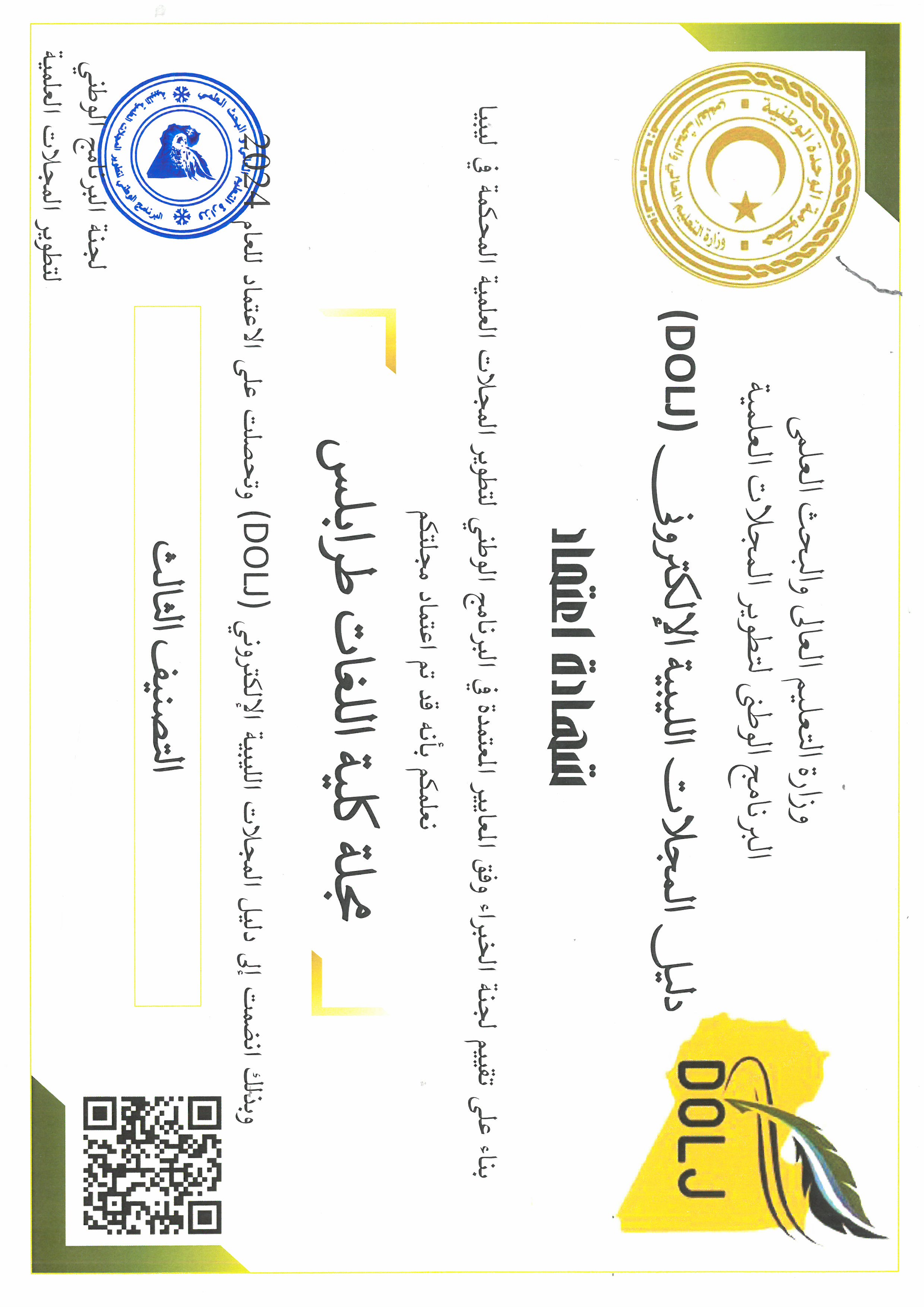An investigation of Incorporating Global issues in Libyan EFL Classrooms: ‘Voices from the Field’
DOI :
https://doi.org/10.56592/flj.v1i28.817Mots-clés :
EFL, global issues, Libyan instructors, professional development, teachers’ beliefsRésumé
Recently, the integration of global issues into educational systems has attracted significant attention throughout the world. This study aims to investigate the perceptions of 30 Libyan university instructors’ about incorporating global issues into their teaching practice, as well as the factors that affect how they integrate global issues into their teaching and the global issues that they incorporate in their classrooms. A mixed method approach was used to collect data in this research. The data was collected through using questionnaire and a follow-up semi structured interview with six university instructors working in three Libyan universities. The findings show that EFL Libyan instructors perceive integrating global issues in their teaching positively. The main factors that influence their incorporation of global issue in their teaching practice are their beliefs that the global issues are unrelated to their courses, in addition to their lack of expertise and their students’ low level. Health and environmental issues are most frequently addressed in the classrooms of the study's participants, with less emphasis placed on human rights, and social justice topics. These findings have significant policy and educational implications for Libya. Incorporating social issues into language classes might be crucial to enhance Libyan youth knowledge of issues like human rights, social equality, and citizenship as the country experiences an unstable political and economic situation.

 https://orcid.org/0009-0002-8251-5878
https://orcid.org/0009-0002-8251-5878





